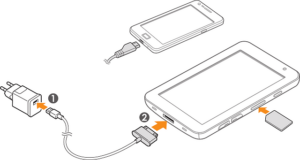North Carolina residents have strict consent laws for telemarketing calls. Do Not Call Attorney NC helps uphold these regulations, advises on disinterest communication, and removes numbers from promotional lists. Interacting with callers may be interpreted as consent, so understanding rights and registering on the NDNCR is crucial. Unwanted calls should be documented and complaints filed with the state or a specialized Do Not Call attorney in NC to protect consumer rights.
In North Carolina, understanding consent is crucial for businesses and individuals alike. This article guides you through the complex landscape of consent laws in NC, focusing on when residents might have accidentally agreed to receive calls. We explore cases of unintentional agreement, do-not-call lists, and your rights. Learn essential steps to enforce your right against unwanted contact from a Do Not Call attorney NC.
Consent Laws in North Carolina: What You Need to Know

In North Carolina, just like in many other states, there are strict laws regarding consent and telephone marketing practices. Understanding these laws is crucial for both consumers and businesses to avoid unintended agreements or violations. The Do Not Call Attorney NC plays a vital role in ensuring these regulations are adhered to, protecting residents from unwanted calls.
North Carolina’s consent laws dictate that individuals have the right to refuse phone solicitations at any time. If a resident has not explicitly given permission for marketing calls, businesses must respect their decision. Accidentally agreeing to receive such calls can be avoided by clearly communicating disinterest and registering on the state’s Do Not Call list. Consumers are encouraged to stay informed about their rights to maintain control over their communication preferences.
Unintentional Agreement: When Calls Are Not Welcome

In North Carolina, residents often find themselves in situations where they may have unintentionally agreed to receive calls from unknown sources, leading to unwanted communications. This can occur when an individual, unaware of their rights, provides basic contact information during a transaction or interaction, only later to realize they’ve signed up for marketing calls or messages. For instance, when filling out a form at a local business or signing up for a newsletter through a website, individuals might not anticipate being added to promotional call lists. These agreements can be problematic, especially when it comes to recurring and unsolicited calls, prompting many NC residents to seek legal guidance from a do not call attorney NC.
Understanding one’s rights is crucial to avoiding such unintended agreements. North Carolina laws protect consumers from unwanted telemarketing calls, and violators can face penalties. If you’ve found yourself on a call or message list without consent, consulting with an attorney specializing in consumer protection law can help clarify your options and guide you through any necessary steps to remove your number from these lists, ensuring a quieter and more peaceful communication experience.
Understanding Do Not Call Lists and Rights

In North Carolina, residents have the right to protect themselves from unwanted telemarketing calls through the National Do Not Call Registry (NDNCR). This federal list ensures that consumers can opt-out of receiving marketing or sales calls at their home, work, or cell phone number. However, many people are unaware that simply picking up a call or providing any form of interaction, such as speaking with an automated system, can be interpreted as consent to receive future calls. This is where the need for a Do Not Call attorney NC comes into play.
A Do Not Call attorney NC can help residents understand their rights and take necessary actions to prevent accidental agreements. They can guide individuals on how to register their numbers effectively, manage existing listings, and file complaints against violators. It’s crucial to remember that consent can be withdrawn at any time by simply contacting the caller and requesting to be removed from their calling list. Understanding these nuances is essential in navigating the complex landscape of consumer protection laws.
Enforcing Your Right: Steps After Unwanted Contact

If you’ve received an unwanted call from a telemarketer in North Carolina, knowing your rights and taking action is essential. The first step is to politely but firmly decline the call and inform the caller that you do not wish to receive any further communications. You can say something like, “I am not interested, please remove me from your calling list.” It’s important to remember that you have the right to refuse calls at any time.
Next, consider documenting the incident by noting the date, time, and caller’s information if possible. This can be useful if you decide to take further action. You can file a complaint with the North Carolina Department of Justice or contact a do not call attorney in NC who specializes in such matters. They can guide you through the process and ensure your rights are protected, helping to prevent future unwanted calls.






